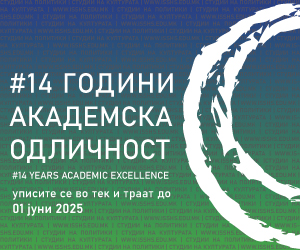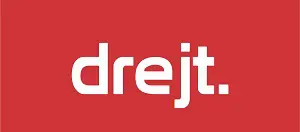Dr. Saso Ordanoski, political analyst and expert in Civil – Center for Freedom, in his regular monthly analysis speaks on the conditions for holding elections, on the responsibility and role of the State Election Commission, the Special Prosecutor’s Office and of the international community in the difficult social-political processes in Macedonia.
According to Ordanoski, the question remains open on whether VMRO-DPMNE will participate in the elections. The ruling party will bring the decision after it examines in detail its ratings among the electorate. Ordanoski’s standpoint is that VMRO-DPMNE will not go to elections, if they know they are sure to lose!
The analysis that CIVIL is presenting are part of the project “Forward”, dedicated to the long-term monitoring of the electoral and social-political processes in Republic of Macedonia. The views and recommendations given in this analysis are part of CIVIL’s positions in this process.
Elections
(Is it possible for the elections to be postponed? Should the elections be postponed? Why? Are there conditions for free elections? What are the main challenges?)
The consent that we now have from all of the most important factors in Macedonia for elections to be held on December 11, unfortunately, still does not mean that there are no chances for those elections not to be held. I see the reason mainly in that the ruling party of VMRO-DPMNE is conducting weekly, and sometimes even daily research, in terms of how trends are developing and how much support there is for their policies and their platform with which they will go to elections. And because the elections in Macedonia will obviously be questions of a referendum: are you in favor or against Nikola Gruevski and Ali Ahmeti. I think that they do not have a final assessment on whether it will be worth for them to go to elections, should the trends continue to go down.
I do not believe in the possibility for VMRO-DPMNE to go to elections, if they know ahead of time that they will lose. They will make that assessment in several weeks, once they are able to see how things are going. We still have time before us in which, in reality, there will only be bad news for the ruling party. They have several alternatives that they can activate for postponing the elections.
The most obvious one is the constitutional termination of the Special Prosecutor’s Office (SPO). It is a very risky move, which I believe in the end will reflect on them terribly in a political sense, because then it will come down to the choice in Macedonia: Are you for Katica Janeva or for Nikola Gruevski?
As things are now, with the support that the SPO is enjoying from two thirds of the population, the political conflict between any which factor and the SPO only go at the expense of that factor. In a short time, it will become obvious whether the ruling parties, and especially VMRO-DPMNE, really wants to go to elections now or is playing a complicated game in which they would not go to elections, but for someone else to bear the reasons and blame for this.
State Election Commission (SEC)
(What is the role of the SEC in this period? The sixth electoral unit is the challenge for which the SEC has been warning the Ministry of Justice for quite some time. The Parliament has returned the ball to the SEC. Voters Register, bodies of the SEC, cooperation with institutions, cooperation with civil society sector, education, independence of the SEC, are just a few of the many challenges that the SEC and the entire electoral process are facing.)
Macedonia still has institutions, which are still to a great extent not what they should be. Among them is certainly the State Election Commission, because, regardless of all the political fixes and repairs it underwent in this past year or two, it is still not a body in which the public has trust that it is capable of conducting elections in an objective and professional manner.
The SEC, in this phase now, is just an organ that is passively observing the developments on the political scene. Tensions have still not started within the SEC. But, even the public is aware that if a situation comes where certain sensitive political issues would have to be resolved, in which sides would have to be taken on specific problems, and I think, that the SEC would continue to play the role of confusion, of contributing to further problems and not to clearing the situation.
We need to understand that unfortunately, the regime in Macedonia is in such a situation in which vagueness and haziness suits them better, a relatively chaotic situation instead of having a clear flow of things, with precise, accurate processes that have their own institutional frameworks, and legal resolution. In that situation, they are still able to spread confusion, whereas the SEC is the culmination of the election confusion, in the institutional sense.
A very thorough reform will be expected from us as a society, following the elections, should they be held on December 11, along with repositioning, a discontinuation of what the institutions have been until now. If we are lucky for the regime to change, then after these elections we will have to start with a thorough reform of this electoral system. These types of open issues, such as the sixth electoral unit, the voter lists that have still not been revised entirely, competencies, rights, obligations…. all of these issues will have to be redefined.
Rules of game need to be established, which will not be controversial for anyone and will not produce confusions in which we are living in now. Whenever these institutions produce confusions, decisions are politically arbitrated. And that means that they are not guided by the laws, but by certain interests that are private, criminal, political and so forth. We live in this reality now. We will have to come out of this after the elections, and that is one of the greater reforms that awaits the Macedonian society and the state.
Positions, attitudes, analysis and recommendations of CIVIL do not necessarily reflect the views of donors on projects implemented by the organization. The “Forward!” project is financed with German funds from the Stability Pact for South Eastern Europe.




